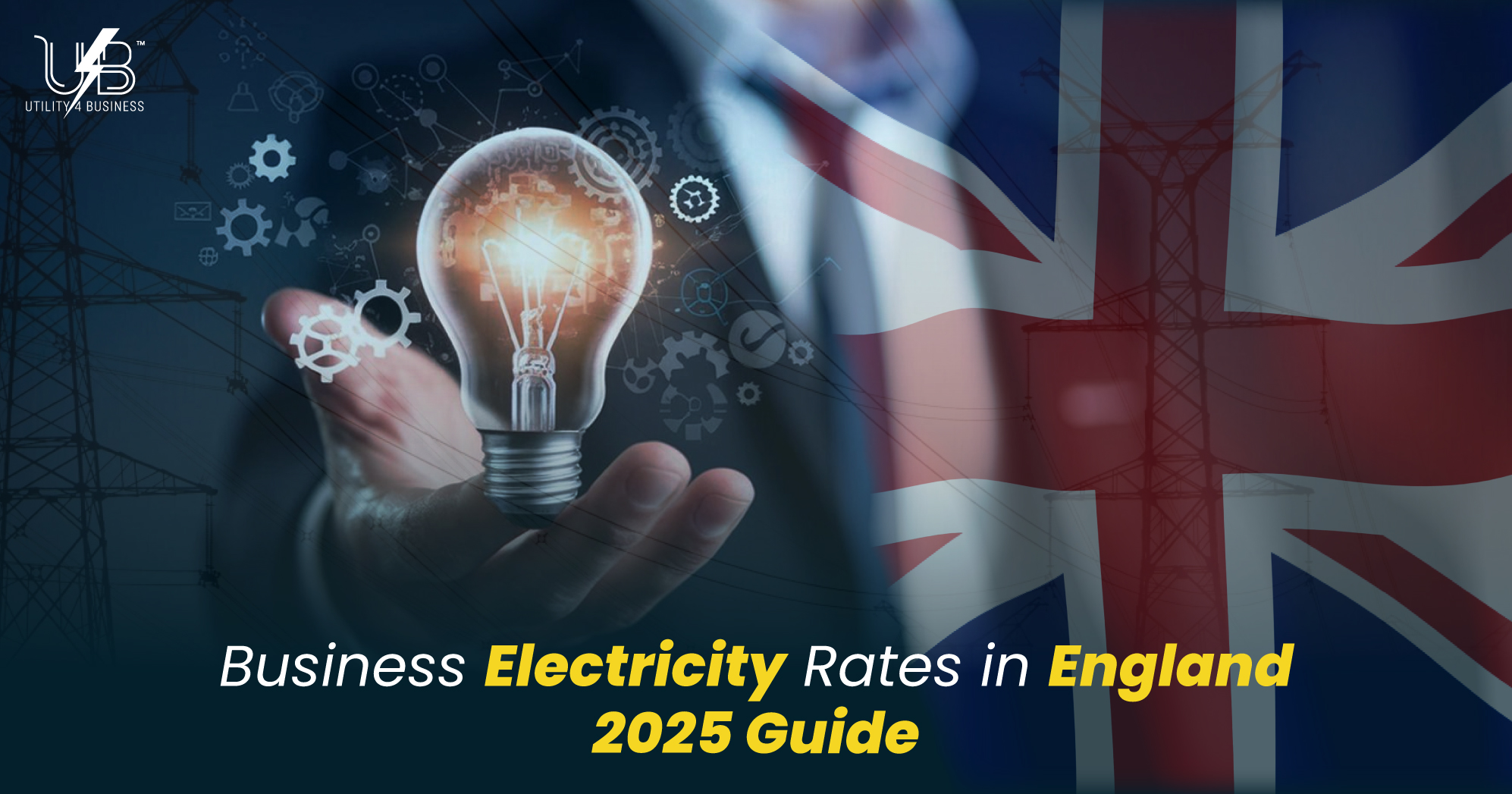Business Energy Comparison in Scotland
Smart Energy Savings for Scottish Businesses

Scotland’s business energy market moves quickly. Prices change with the wholesale market, network regions influence non-energy costs, and contract terms can raise or lower your total bill over the full term. A clear, structured approach to business energy Scotland helps you control spend, avoid costly contract traps, and plan with confidence.
Utility4Business supports Scottish firms of all sizes with end-to-end procurement. We compare a wide range of offers, explain the fine print, and help you select a contract that fits how your organisation actually uses energy. This guide explains how business energy comparison works in Scotland, what factors affect your price, and the steps to secure a clean, fair contract. It also covers common pitfalls, metering, billing checks, and how to handle multi-site portfolios that span Scotland and Business Electricity in England.
Why Comparing Business Energy In Scotland Matters
Energy is a controllable cost when you approach it with structure. A disciplined business electricity comparison can reduce total spend, improve cash flow, and remove uncertainty from your budget. In Scotland, firms benefit from:
- Competitive pricing by tendering multiple suppliers at once.
- Contract structures that reflect real usage, not generic profiles.
- Clause checks that prevent hidden uplifts and unfair pass-throughs.
- Metering and data insights that cut waste and avoid penalties.
At Utility4Business, we do not chase headline rates alone. We focus on the lowest total cost over the contract term, with clean terms and clear billing.
How Scotland’s Networks Affect Your Final Bill
Your unit rate begins with wholesale costs, but local networks can influence non-energy charges. Scottish sites sit under specific distribution areas, and those regions carry different network cost elements that appear on your bill. You cannot choose the local network, yet you can account for its impact. When Utility4Business runs a business electricity compare, we normalise quotes so you can make like-for-like decisions regardless of region.
What Drives Price Beyond The Headline Unit Rate
Several elements influence what you actually pay:
- Consumption Shape
Electricity used at peak times costs more to serve. A bakery that runs ovens early morning will show a different profile from a design studio with a steady daytime load. Your tariff should reflect this.
- Meter Type
Non-Half-Hourly (NHH) meters suit lower usage sites and many SMEs.
Half-Hourly (HH) meters apply to higher demand or mandated smart setups. HH contracts often include capacity, reactive power, and data charges. A fair comparison of business electricity exercise sets these side by side.
- Standing Charges And Non-Energy Costs
Network, policy, and balancing costs vary over time. Some offers fix them; others pass them through. Know what is fixed and what can move.
- Term Length
Shorter terms give flexibility if markets fall. Longer terms provide budget certainty. Many Scottish firms layer terms across sites to spread timing risk.
- Taxes And Levies
VAT and environmental levies apply across the UK. Eligibility for reduced VAT or levy relief depends on the use case and sector. Paperwork must be correct to benefit.
Smart Metering And Data: Turning Information Into Savings
Non-domestic smart meters provide interval data that reveals how and when you use energy. With the right view, you can see:
- A baseload that never turns off and drains cash at night or weekends.
- Short, sharp spikes caused by old motors or poorly managed equipment.
- Seasonal patterns that justify renegotiating capacity or changing shift times.
Utility4Business helps you interpret these patterns. We use the data to right-size capacity for HH sites, reduce waste, and design tariff choices that match your usage. Often, these actions save as much as a headline p/kWh discount.
Fixed Or Flexible: Which Contract Works In Scotland?
There is no single “best” answer. It depends on usage, budget discipline, and decision-making style.
- Fixed Contracts
Lock in a price for the term. Helpful for cash-flow planning. You still need to check what is genuinely fixed and what is passed through.
- Flexible Contracts
Track the market. They can deliver gains in falling markets but need governance, prompt decisions, and clear triggers for trades or fixes.
Many SMEs choose fixed terms for simplicity. Larger users may adopt flex under a formal risk policy. Utility4Business helps you set the rules so decisions are calm rather than reactive.
A Step-By-Step Plan For Comparing Business Energy In Scotland
A structured process turns a one-off quote into a robust comparison.
1) Gather Site Data
Collect your last 12 months of bills (or as many as you have), MPAN/MPRN, meter type (NHH/HH), latest reads, and site opening hours. Note any planned changes, such as new equipment or extended shifts.
2) Define Objectives
Decide whether budget certainty or market opportunity matters most. Select a target term (12, 24, or 36 months) and note sustainability goals, which may steer you toward specific products.
3) Run A Full-Market Tender
Utility4Business invites offers from multiple suppliers at once. We request like-for-like formats so that standing charges, non-energy costs, and indexation are clear. This is the foundation of a clean business electricity comparisons exercise.
4) Normalise And Score
We score each offer across:
- Blended p/kWh based on your usage profile.
- Standing charges and pass-through elements.
- Contract terms (termination, notice windows, change of tenancy).
- Metering support, data access, and billing performance.
- Service levels and query response times.
5) Check Taxes And Reliefs
Confirm VAT status, levy treatment, and any exemptions. File or update the necessary declarations so you do not overpay.
6) Sign With Clarity
Review the risks, confirm start dates, and retain the full contract schedules. We then set a renewal reminder well ahead of contract end to avoid deemed rates.
Avoiding Common Pitfalls In Scottish Business Energy Contracts
Many overpayments come from avoidable errors. Watch for:
- Deemed Or Out-Of-Contract Rates
When a contract ends without renewal, rates jump. Start renewals at least four months before expiry, especially on HH meters.
- Vague Pass-Through Clauses
Confirm exactly which charges can change. Ask for a clear schedule rather than broad wording.
- Back-Billing Surprises
If you receive a bill that reaches far into the past, check time limits and the reasons for delay. Keep written records and challenge errors promptly.
- Incorrect VAT Or Levy Status
If you qualify for reduced VAT or levy relief but fail to file the forms, you overpay every month. Review status annually or whenever your operations change.
- Capacity Mis-Set (HH)
Too high wastes money; too low risks penalties. Use interval data to set the right level and review it after major equipment changes.
Scotland’s Regional Realities: Highlands, Islands, And Rural Sites
Rural locations can experience longer fault resolution times, weather-driven risks, and specific network constraints. While suppliers often price nationally, underlying network factors can influence non-energy charges and reliability. For remote sites, Utility4Business includes resilience planning, smart metering rollout schedules, and clear escalation paths with suppliers.
Managing Gas And Electricity Together
Comparing gas follows similar steps, but weather and process heat drive larger seasonal swings. Forecasts help select the right term and contract structure. Keep in mind that levy rates for gas differ from those for electricity and may change during your contract. If you sign multi-year terms, plan for these adjustments in your budget.
Multi-Site Portfolios Across Scotland And England
Many organisations run locations in Glasgow, Aberdeen, Inverness, and across northern England. Unified procurement increases leverage and keeps terms consistent.
- Portfolio Tenders
Tender all sites together to simplify decisions and improve buying power.
- Staggered Start Dates
Avoid every site expiring in the same month. Ladder renewals to spread market timing risk.
- Consolidated Billing
One statement across sites cuts admin and speeds reconciliation.
- Cross-Border Coordination
Align Scottish contracts with Business Electricity in England so policies, reporting, and sustainability targets stay coherent.
Utility4Business builds portfolio-level comparison packs so you can see the whole picture in one place and still drill down to the site level.
Bill Accuracy: The Monthly Checklist That Prevents Overpayment
A keen unit rate means little if billing is wrong. Use a simple monthly checklist:
- Meter Reads
Confirm actual reads vs estimates. Smart meters reduce estimates and smooth cash flow.
- VAT And Levy Lines
Check the correct percentage and any reliefs you claim.
- Standing Charges And Network Costs
Compare against the contract schedule. Query unexpected uplifts immediately.
- Data Variance
Look for unusual spikes or baseload creep. These often signal equipment faults or control issues.
Utility4Business can manage these checks for you, raise supplier queries, and track resolutions to closure.
Energy Efficiency: Savings Beyond The Tariff
Lower consumption is the simplest hedge against price volatility. Start with steps that deliver fast payback:
- LED Lighting And Controls
Replace legacy lighting and add occupancy sensors in low-traffic areas.
- Variable Speed Drives
Fit drives on fans and pumps to match speed with demand instead of running at full tilt.
- Time-Of-Use Shifts
Move flexible processes away from peak times when practical.
- Maintenance Led By Data
Interval data exposes abnormal patterns that point to failing equipment. Fix the root cause, not just the bill.
When Utility4Business runs a compare electricity for business exercise, we can pair it with a light-touch efficiency plan based on your interval data.
Insurance And Utilities: One Calendar, Less Admin
Energy price risk sits alongside other operational exposures. Many Scottish firms review utilities when they Compare Business Insurance in Scotland. Aligning these calendars reduces admin, ensures consistent site data, and helps you plan working capital across premiums and energy.
Scottish Manufacturer Near Dundee
A small manufacturer with an HH electricity meter and gas for process heat wants a two-year fixed term for budget certainty.
- Data Review
Interval data shows higher winter demand from heaters and compressors, with a stable summer baseload.
- Tender
Utility4Business runs a business electricity comparison and a parallel gas comparison across the market, requesting clear schedules for any pass-through items.
- Normalisation
We score offers on blended p/kWh using the manufacturer’s profile, add standing charges, and outline non-energy elements.
- Taxes And Relief
We confirm VAT status and levy lines, prepare any required declarations, and show the all-in rate.
- Capacity
Interval data indicate the agreed capacity is slightly high. We right-size to remove unnecessary standing charges.
- Aftercare
We set a renewal reminder six months ahead of ethe nd date and establish a monthly bill check.
The outcome is a fair price with clean terms and fewer billing queries. This is the goal of any serious business electricity comparison process.
Scotland Vs England: What Actually Changes?
Your procurement steps are the same. Differences arise in regional network costs and, at times, in local resilience considerations. The comparison logic, contract checks, and billing controls stay consistent on both sides of the border. For firms with mixed footprints, Utility4Business coordinates Scotland and Business Electricity in England within one portfolio method, so decisions are faster and reporting is cleaner.
Final Checks Before You Sign
- Confirm start and end dates, plus notice windows.
- Ensure VAT, levy, and any relief forms are correct and on file.
- Verify metering arrangements and any smart-linked tariff conditions.
- Keep the full contract pack and all pricing schedules.
- Set a renewal reminder at least four months before expiry.
Conclusion
In Scotland, the difference between a quick quote and a disciplined business energy Scotland review shows up in your bank account. Build a repeatable process: gather data, set goals, run a full-market tender, normalise offers, confirm taxes and levies, then sign with clarity. After that, manage bills monthly and start renewals early.
Utility4Business is ready to help. We run your business electricity comparison from end to end, show the true all-in cost, and protect you from contract traps that inflate spend. If you also plan to Compare Business Insurance Scotland, we can align timelines and data to cut admin and keep your procurement tidy. For multi-site operators with locations in Scotland and Business Electricity in England, we coordinate one clean portfolio approach so you can focus on operations instead of paperwork.
When you are ready, share your latest bills and meter details. We will prepare a clear comparison pack that shows where you can save, how to reduce risk, and what to do next.
Find This Article Helpful? Share It Now!
At Utility4Business, we offer top-notch customer support and business utility solutions for businesses across the UK. Consider sharing this article and helping others discover how our expertise can add value to their business success.

Read Our Latest Posts
Explore our latest blog posts and learn how Utility4Business can support your business growth with tailored utility solutions and services. Stay ahead of the curve with the latest information from industry experts and take advantage of our user-friendly comparison services to find the best business deals.


Get Connected
At Utility4Business, our team of experts can help you figure out the highest-value business utility deals that will help your business grow over time.

